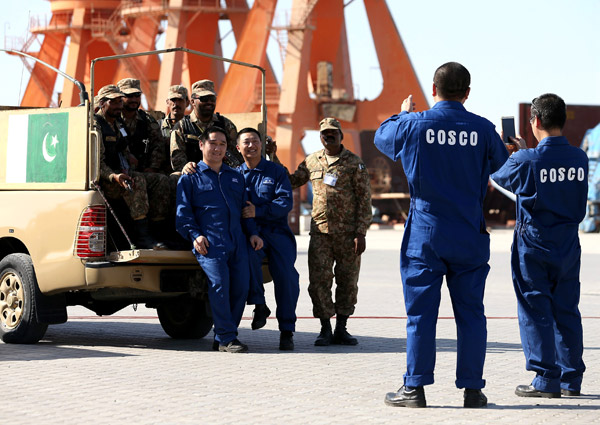
Douglas Paal, Vice President, Carnegie Endowment for International Peace
Matt Ferchen, Nonresident Scholar, Carnegie-Tsinghua Center for Global Policy
May 15, 2017
Behind all the hype surrounding China’s changing global role in general, and the One Belt One Road concept and the BRI in particular, lie important and unanswered questions about America’s longer-term strategy for reshaping its relations with China and Asia more broadly.
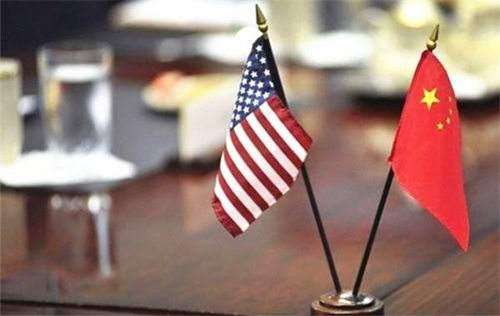
Fan Gaoyue, Guest Professor at Sichuan University, Former Chief Specialist at PLA Academy of Military Science
Apr 05, 2017
At a press conference on March 30, Chinese spokesperson Lu Kang announced that Chinese President Xi Jinping would visit U.S. President Donald Trump at his Mar-a-Lago property in Florida from April 6-7.
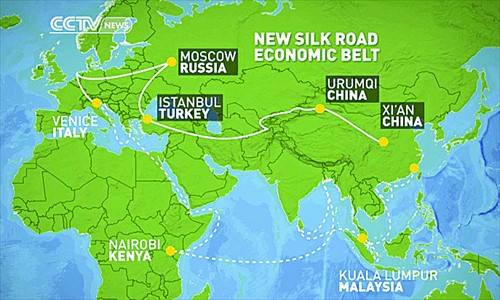
Don M. Tow, President, New Jersey Alliance for Learning and Preserving the History of WWII in Asia
Mar 27, 2017
Perhaps the greatest benefit of the OBOR initiative is the increased understanding and tolerance of people of different backgrounds and the recognition of the need to collaborate peacefully with each other, in order to achieve the win-win objective.
Beth Smits, PhD candidate, Paul H. Nitze School of Advanced International Studies (SAIS), Johns Hopkins University
Nov 30, 2016
China is not the only Asian country looking to the ancient Silk Road as a path to greater economic and political influence. Both Japan and South Korea have their own, albeit more modest, versions of Xi Jinping’s Belt and Road Initiative. While Seoul and Beijing have expressed public interest in collaborating along the Silk Road, Tokyo remains silent. Will the BRI be a driver for greater integration in Northeast Asia, or will these three nations prefer to follow their own paths eastward?
Alek Chance, Research Fellow, Institute for China-America Studies
Nov 03, 2016
The importance of China’s Belt and Road Initiative (BRI) is clear in regards to its place in economic and foreign policy. How it fits into U.S.-China relations is less obvious. While BRI could contribute to competition between the U.S. and China, it could also be used to enhance cooperation—an initiative that must be engaged and shaped with conscious efforts.
Yu Xiang, Senior Fellow, China Construction Bank Research Institute
Aug 15, 2016
The economic relationship should have evolved with China and U.S. economies’ “New Normal”, but a variety of fears are in the way. The U.S. would like to decrease its reliance on consumption as the engine of growth, relying more on domestic investment and exports. China seeks more consumer spending, and less reliance on domestic investment and exports. Those goals are highly complementary and mutually reinforcing, creating opportunities that should not be missed.
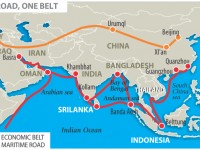
Lucio Blanco Pitlo III, President of Philippine Association for Chinese Studies, and Research Fellow at Asia-Pacific Pathways to Progress Foundation
Apr 19, 2016
Lucio Blanco Pitlo III compares China's One Belt, One Road (OBOR) initiative with the U.S.'s Rebalance to Asia, ultimately advising that for the U.S. to be seen as not reacting to China's growing regional influence, it would need a better appreciation of the security needs, growing aspirations, and economic demands of rising powers.
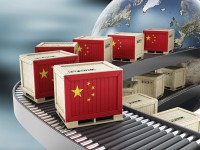
Ben Reynolds, Writer and Foreign Policy Analyst in New York
Feb 22, 2016
China now seeks to export its excess industrial capacity as a means to cope with its economic troubles. The problem is that China is trying to export its way out a local crisis caused in large part by a global glut of commodities. Whatever the case, we should expect Chinese foreign investment to continue to grow, spurring a commensurate rise in its political influence.
Sajjad Ashraf, Former Adjunct Professor, National University of Singapore
Dec 29, 2015
Chinese leadership’s recent engagements points to their persistent pursuit of its vision of connectivity named One Belt One Road (OBOR). New areas are now being added to the list.
Lucio Blanco Pitlo III, President of Philippine Association for Chinese Studies, and Research Fellow at Asia-Pacific Pathways to Progress Foundation
Nov 16, 2015
The Philippine’s theme of this year's APEC Summit is “Building Inclusive Economies, Building A Better World.” Like the case for China's 2014 hosting, this 2015 agenda reflects clear Philippine domestic imperatives. As a major labor exporter, the Philippines will work well with the topic of investments in human capital development.